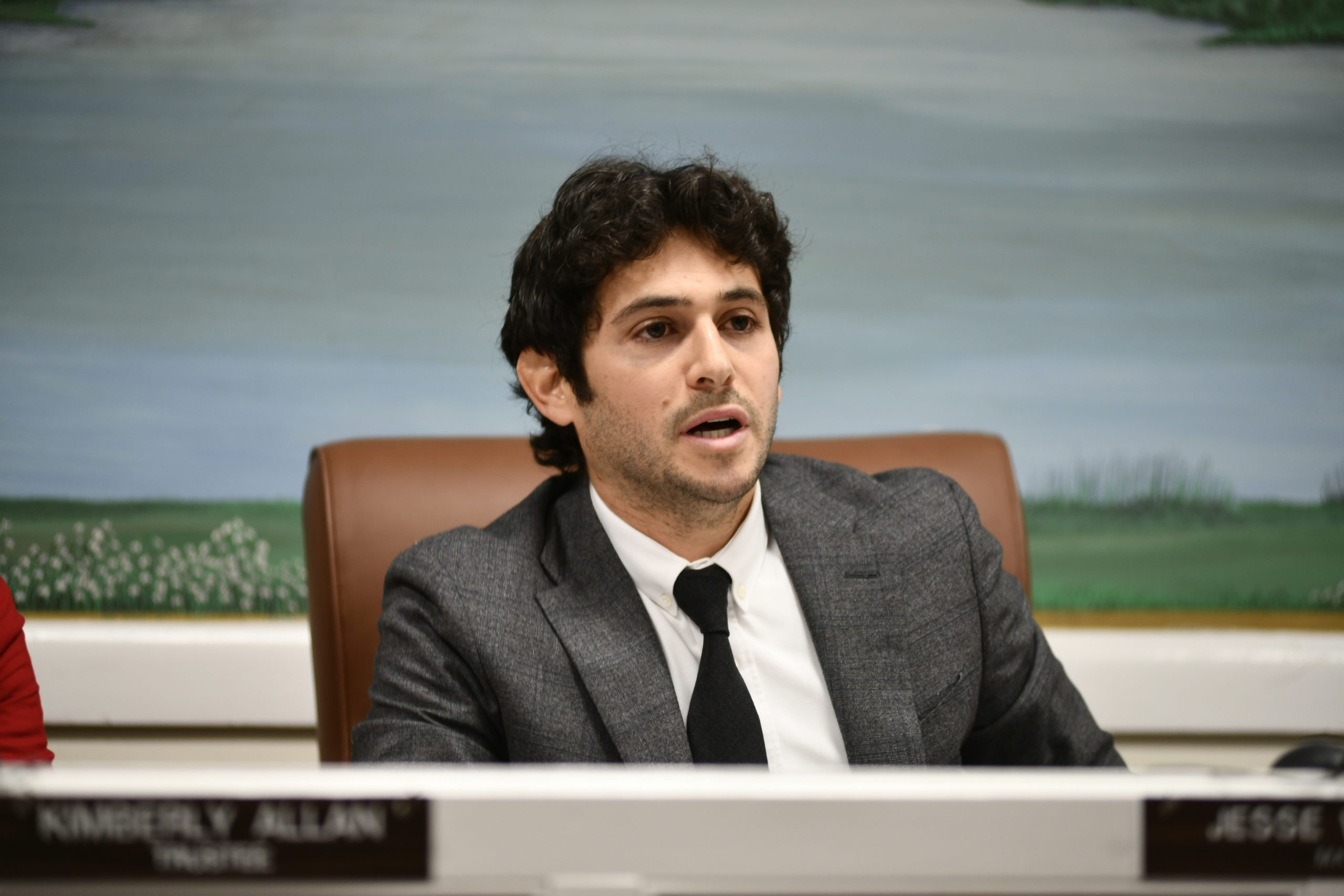
Mayor Jesse Warren was present at the latest Southampton Village Planning Commission meeting on January 6 to lay out a roadmap for projects he’d like to see the commission focus on in the new year and ultimately help the board of trustees bring to fruition.
The list included several efforts that would improve quality of life for residents and improve the aesthetic value of the village, including creating bike paths, more tree plantings and improving WiFi access by creating a public free WiFi system in the village.
Warren also said he is keen on creating more transparency in certain processes that go through village hall, and mentioned that the creation of an open data portal would be a direction that could benefit the community. He pointed out that several other municipalities across the country have been successful in that endeavor, pointing to South Bend, Indiana, as one example.
“It allows access to any piece of information that might be needed,” he said, adding that over the course of the last two years, the village has updated its software in a way that would allow for the creation of an open data portal, and he’s eager to see that come to fruition.
The commission also discussed the beginning stages of an effort to bring a senior center to the village, with Veteran’s Hall as the most likely location. It’s a project that Southampton High School student Summer Stelling, a non-voting member of the commission, is involved in, and she described the vision for the center.
“It would be more like a club, and the idea is to provide seniors who never leave their homes with something to do,” she said, adding that the commission may need to find funding sources for the project, and look for approval from both Mayor Warren and the maintenance crew at Veteran’s Hall to proceed.
Stelling is also hoping to work with local farms and landscaping companies to create a village composting garden.
After Warren’s presentation, attention turned to another pair of guests: Margo Thompson and Andrew Mannitt, who were on hand to share information about the village’s interest in adopting NYSERDA’s NYStretch Code, a climate sustainability initiative that, if adopted, would offer 10 to 12 percent better energy efficiency for all new residential and commercial buildings in the village. She shared that while there can be an initial slight increase in construction costs to adhere to the code (she estimated anywhere from 1 to 2 percent), adopting the code adds value to homes. She also pointed out that many builders are already employing practices that adhere to the code, calling it “achievable and practical to do.”
The Town of Southampton recently adopted the code, and commission members said it would be wise to make sure there was uniformity in the standards to make the process smoother. Mannitt provided more information about the types of grants the village would qualify for if it adopts the code, pointing out that some grants are awarded on a points-based system, and the adoption of the NYStretch Code provides a big chunk of points.
The commission members seemed to be in agreement that adopting the code was a good move, although work remains to be done to hammer out the details.
“It’s a good thing to do,” said Marc Chiffert, who heads the planning commission. “It’s important for all communities to be more energy efficient, and it’s a move in the right direction.”
Adopting the code requires passing a local law, and holding a public hearing.
Village Trustee Joe McLoughlin joined the meeting to express his preference for bringing the issue before the trustees by March, at the earliest, adding that the planning commission could use the time between now and then to hammer out some details and discuss it with the local building community.